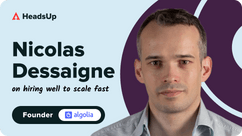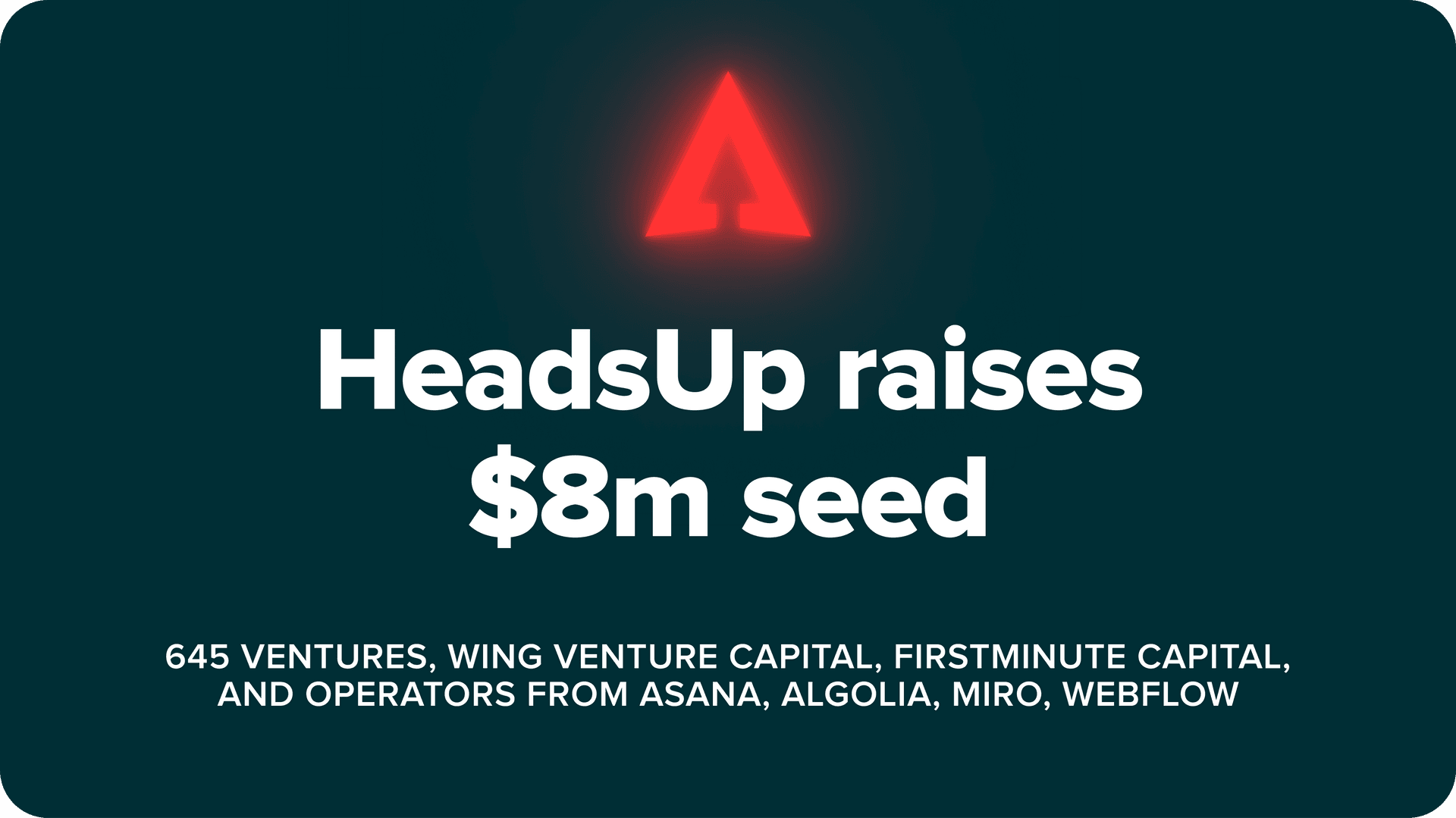If you were the CEO of a startup in its earliest days, what should your top priority be? Some founders might say racing to build out your product, or getting a few big marquee customers on board. Those elements are important for any startup.
But for Nicolas Dessaigne, when he started what was to become the French search unicorn Algolia, a strong emphasis on hiring and building a strong people culture was paramount.
Employees are a company’s best asset. So, companies that invest heavily on the recruiting and retention create the best conditions for their business success.
That was exactly what happened at Algolia — Seven years after its founding, Algolia has managed to retain the majority of its nine earliest employees at the company, a rare feat in the competitive tech startup scene. And it was these employees that helped supercharge Algolia’s well-documented success in the search API space. They were the critical ingredients to its Series D valuation at whopping $2.25 billion.
Nicolas, who is now visiting partner at Y Combinator, told us, “For founders, sometimes recruiting is kind of like your second priority, not the first one. But if it’s a matter of scaling fast, it should be your top priority.”
He shared with HeadsUp his startup’s journey in scaling up his team and the lessons he learned along the way:
Ensure a culture fit right from the start
In Algolia’s earliest days, its founders decided that building a strong sense of ownership at their new company would be key to success and began to look out during the hiring process for entrepreneurs-at-heart who would fit into this vision.
Nicolas explained, “Especially when you are creating in the early days, you want people who are going to be able to work closely with you for a long time. You don’t want mercenaries… You want people who already want to believe in the entrepreneurial adventure.”
These efforts bore fruit. Employees acted with such a high level of ownership over the company that in one incident in 2016 that the founder of NUMA had mistaken an Algolia employee giving a presentation at the startup accelerator for an Algolia founder, Nicolas recalled in a LinkedIn article.
How did he get there? Nicolas acknowledges that they were no experts at talent-spotting when they began the company — but by making the need to find such employees a priority, they were able to succeed along the way.
That meant they prioritized hiring right, over hiring quickly. He said, “We really were hiring slowly, in the sense that we wanted to make sure we were hiring the right people, instead of filling the job position.”
Candidates with prior startup experience tend to have those values, but what really helped them tease out the right candidates was through practical experience — for example, by giving them an assignment as part of the interviewing process about the company’s future, or engaging them for contract work.
Nicolas says, “You need to connect, you need to really, really take your time.”
Learn about best practices from top PLG leaders from our weekly newsletter
Bring in the recruiters to scale fast
When Algolia was just 35 employees strong, Nicolas engaged two external recruiters to help with hiring more employees.
That’s rare in the early phases of a startup, when most leaders prefer to rely on their own connections to hire.
But Nicolas says that professional recruiters have a lot to offer a young company, both in terms of a huge Rolodex of contacts as well as their expertise in building teams.
“Not only did they help us source and select candidates, that helped us hire faster, but also they were able to structure the process to make us hire better — not only faster, but also better,” he said.
They helped Algolia formalise and refine their recruiting process — for example, by helping to come up with interview questions that Algolia’s leaders could use to gauge a candidate’s cultural fit with the company.
Nicolas’ rule of thumb? Consider engaging a recruiter if you plan to recruit 12 people in the next 12 months.
Building culture doesn’t stop at hiring
With these practices, Nicolas was able to build a team of people with the traits that would take Algolia to the next level. But he soon found it wasn’t enough.
When Algolia had reached about 10 employees in size, Nicolas noticed that “people were going back to doing what they had been used to” — and the sense of ownership was starting to fade.
The startup’s leaders soon realized they had to take steps to formalize the culture through processes.
Some examples of what they did included creating a wiki page to state what the company’s values were, particularly with respect to ownership, and onboarding. Other fun ways to put these values top of mind were creating Slack emojis for each of the company’s values.
With these practices, Nicolas was able to lay the foundations for a strong team.
Stay tuned to HeadsUp’s podcast for an upcoming episode with Nicolas where we deep dive further into Algolia’s hiring practices, and how they continue to foster a culture of ownership and teamwork among its employees.


